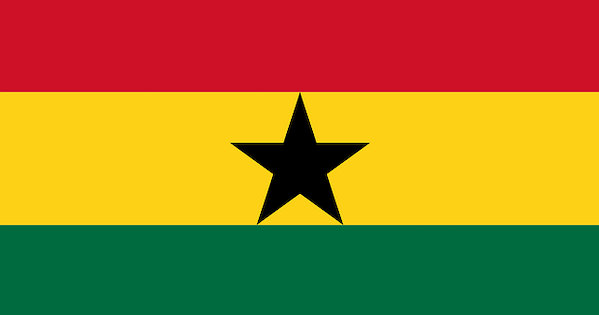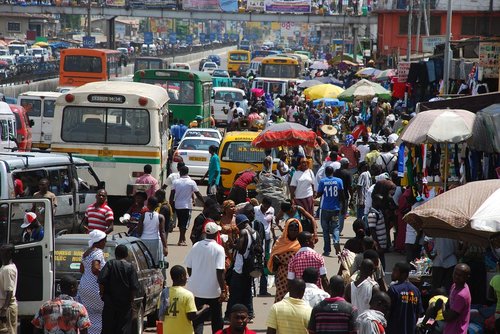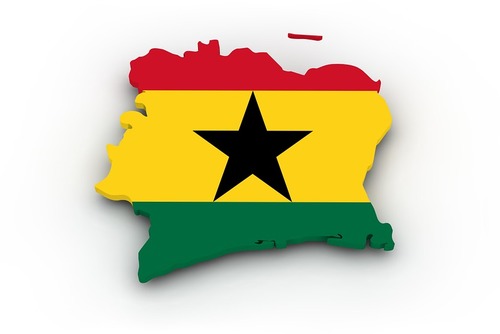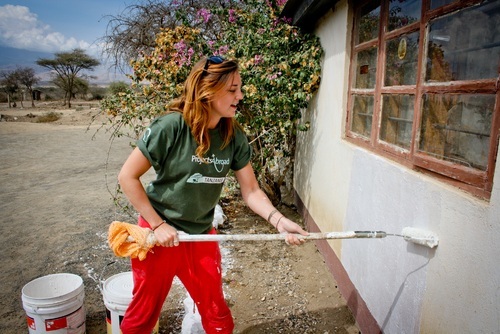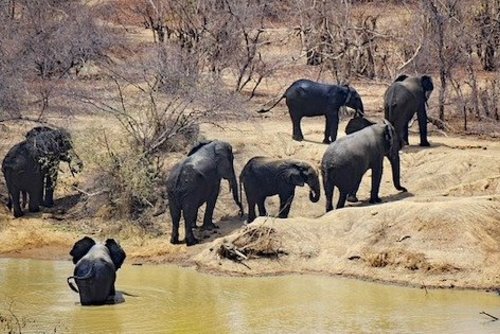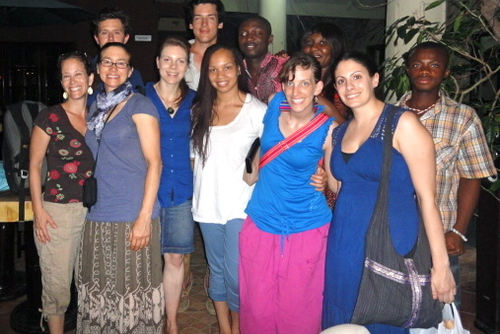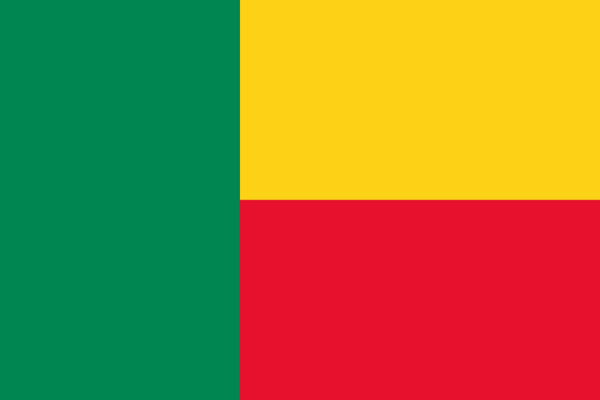Travel to Ghana
View our Ghana guide with travel tips, ideas for the best things to see and do when backpacking or on a gap year and advice about itineraries, costs, how to save money, and more!
You can visit the hungry hippos, see crocodiles lazing in the sun, or walk through the lands of elephants and wildebeest (really). Beyond the mainstream tourism sights which draw thousands of visitors each year, you can get off the beaten track and get an authentic experience like no other.
- Capital City: Accra (population 2,300,000 approx)
- Population: 24,500,000 (approx)
- Currency: Cedi (GH₵)
- Country Area: 239,000 km2
- Language: English is the official language, and ten major local languages are widely spoken
- International Dailing Code: +233
- Religion: 68.8% Christian, 15.9% Muslim, 15.3% Traditional, Other & None
- Visa: To visit Ghana you will need a valid passport, and also apply for a tourist visa prior to arrival
- Accommodation: There are lots of hotels and hostels throughout the country with options for all budgets
- Food & Drink: Food is different to what you might be used to but also very healthy and tasty - breakfast can involve a loaf of sugary white bread and for lunch or dinner you might be eating rice, a sticky meal of fufu (a play dough-like carbohydrate) and salty peanut soup. We recommend only drinking bottled water.
- Interesting Fact: Ghana was the first African nation to gain independence form colonial powers
Background to Ghana
Present day Ghana has been inhabited since approximately 4000BC. Many tribes co-existed with none showing real dominance until the 1600’s, when the Ashanti Kingdom rose up as the most powerful in the land. Much of their wealth was derived from gold. At this time, Kumasi, the centre of the kingdom had amenities comparable to those in Europe. Portuguese, French, British, Swedish, and Danish explorers all arrived on Ghanaian shores.
Colonial powers built forts or castles, which were a transit point for commodity trading, the most notable commodity being slaves. Some of these castles are still standing today (Cape Coast and Elmina castles have been preserved, and you can visit the museum and old slave holding rooms in each). The Ashanti played a major role in the trans-Atlantic slave trade, and the abolition of slavery in 1821 finally ended the Ashanti dominance. Ghana later became a British colony. Then, led by a charismatic leader Kwame Nkrumah, Ghana became the first African country to gain independence in 1957.
Nkrumah’s popularity declined before long, and he was removed by a military in coup in 1966. Government struggles remained until 1992 when democracy was officially introduced. Today Ghana is a peaceful West African country making considerable inroads to development.
"Arriving in Ghana, the first thing that struck me is how friendly and welcoming the people are. Everyone wants you to enjoy what their country has to offer, and will do anything to ensure you have the best experience possible. You are welcomed with open arms, with people greeting you in the street and often stopping you to have a friendly chat." - Marc, UK
Weather & Best Time to Visit Ghana
Wet season is late April to October. Dry season is November to late March. There is no best time to plan a trip here as all year is really is pleasant temperature wise and quite hot. We recommend going from January to June. First, because July and August is the rainy season and it is possible to get malaria caused by a mosquito bite which is a disease that is very common in West African countries. Secondly, because it is the time when there are more international visitors.
Travelling & Backpacking in Ghana
There are so many things you should add to your Ghana travel itinerary including:
- Explore Accra, visiting the National Museum, Centere of national Culture, the National Theater and Independence Square
- Kakum and Mole National Parks
- Visit craft markets to see and buy some of the weavings, wood carvings, ceramic and metals works that are on offer
- Spend time on one of Ghana’s beaches; maybe La Pleasure or Kokrobite which are only 25 km west of Accra
- Visit Cocoloco Beach and observe the numerous birds and sea turtles
- Take a safari in one of Ghana’s 16 national parks
Transport & How to Get Around Ghana
If you are planning on traveling and moving around Ghana alone or independently here are some tips:
- Tro tro: It is a little bus which takes around 8-10 people to different places all around Accra and all over the country.
- Taxi: It is a bit expensive to take a taxi each time. They are safe, but just be aware, because most of the times the taxi drivers don’t know where to go, even if they tell you they do. So, try to ask around, to find out what is near the place you are going.
- Walking around: Accra and towns outside of Accra is very safe in the day, but at night you have to be careful with your belongings.
- Organised experience: Lots of travel operators offer activities.
- Tips: if you don’t know where you are going just ask people around, they will try to help you out. Try to have change for the tro tro and taxis.
Gap Year in Ghana
Ghana is a very underrated gap year destination and also less touristy destination compared to others in Africa, this means you will get a really authentic experience. Find programs for students, graduates, non-students, career breaks and for people just wanting to do something different.
Ghana is a destination to visit if you are seeking a unique experience away from the tourist crowds, it is also a great value for money country. Most international flights arrive into the capital - Accra, this is a city with a hive of activity and lots of historical sites to visit. Some gap year programs are located in coastal places like beautiful Esiama where the ocean meets the land and one of the most scenic places in the continent. You might not expect it but Ghana has gorgeous beaches, lush National Parks, various cultural and tourist sights, bustling cities and wildlife.
You could spend your gap year volunteering in Ghana, this will be an amazing experience. Trips can be booked in advance through our website, most have flexible start dates meaning you can join most weeks / months of the year. This experience will take you out of your comfort zone and see you completing an ultimate challenge.
Passport / Visa / Money FAQ
- Is a visa required?: Yes
- Allocation of Tourist Visa: Before Departure
- Duration of Tourist visa: 1 to 3 months
- Cost of Tourist Visa: Varies, but you can expect to pay 60USD
- Tourist Visa Extension: Possible up to two years
- Cost of Tourist Visa Extension: Variable
- Passport validation: 6 months required before expiry
- Return/onward flight ticket: Required
- Confirmation of Funds: May be required
- Money/Currency: Ghana New Cedi (GHS)
- Inform Banks: Give the dates of travel and destinations to prevent security blocks on your bank and credit cards.
- Cash: Always take enough cash to cover your expenses for the first week in case there is a problem with your bank cards or access to ATM’s is limited.
- Credit Options: Good idea to have at least two different credit/debit card options i.e. MasterCard, Visa, Maestro, or Cirrus.
- Travellers Cheques: Not recommended as they will be difficult to cash.
- Western Union: If at any time you have any problems in accessing money you can use Western Union transfer. Money can be sent from your home country and received in Ghana the same day.
- Transport: Taxis and tro-tros (mini buses for 15 people) are everywhere. We recommend taking the tro-tro as these are by the most efficient and cheapest way to get around.
Health & Safety
Ghana has a stable government but please check latest travel advice before departing. Malaria can be an issue in this country and please check available vaccinations / medication. Walking out of the Kotoka airport in Accra, you might be accosted by several bulky men, demanding money for ‘protection’ on the walk across the eerily lit car park to our taxi. Usually these people are friendly, but nevertheless unknown faces so keep your wits about you.
Also it is advised to ‘ignore anyone who asks for your cedis’ (Ghanaian currency). Even though this is a developing country Ghanaian people are very friendly in nature and you shouldn't encounter any problems, people are likely to greet you with smies and occasionally children might utter a high pitched shout – ‘Obruni!’ (Akan for ‘white man’). Check for vaccinations prior to departure.

